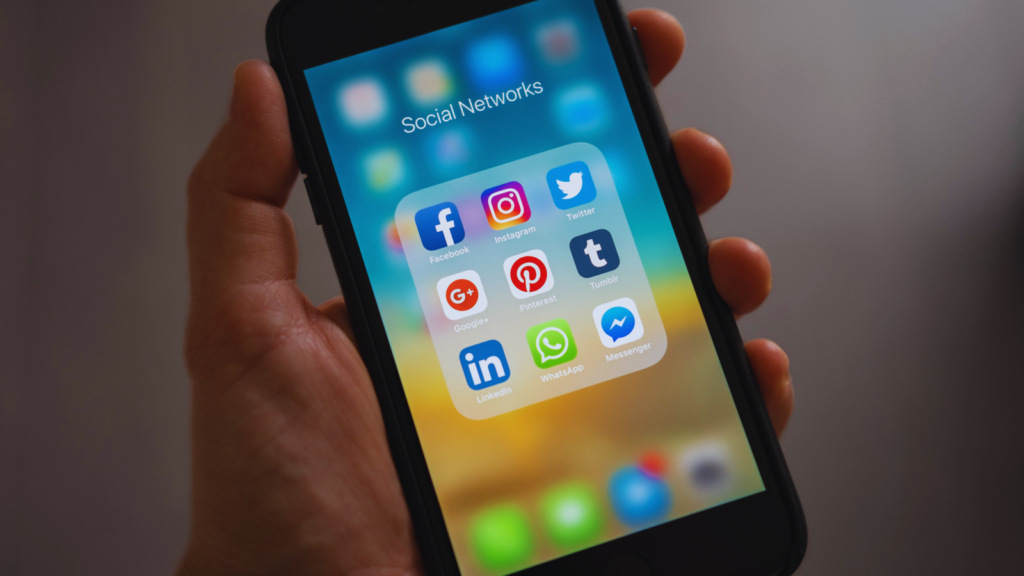Email writing tips to influence readers is especially important in today’s digital age, email communication has become an integral part of our lives. From personal to professional communication, we rely on emails to keep in touch with our contacts. However, crafting an effective email that can grab the reader’s attention and achieve the desired response is not an easy task. The success of an email largely depends on how well it is written and presented to the reader.
Delving into the psychology behind email writing, will provide you with tips to influence your readers and achieve your desired outcome. Such as social proof, concrete and tangible examples, visuals, and effective subject lines will all help in influencing the readers of your emails.

Understanding the Reader’s Psychology
The first and most crucial step to writing an effective email is to understand the psychology of the reader. You need to put yourself in their shoes and consider their needs and preferences. The reader is looking for a solution to their problem, and your email should provide them with that solution. It’s important to understand that readers have a limited attention span, and you need to capture their attention within the first few seconds. Here are some tips to keep in mind when writing emails to influence readers :
- Grab their Attention: The first few lines of your email should be engaging and compelling enough to grab the reader’s attention. Use an interesting subject line that provides value to the reader, and keep the body of the email concise and to the point.
- Personalize the Email: Address the reader by their name and personalize the email by including information that is relevant to their needs or interests. This helps to build a connection with the reader and makes them more receptive to your message.
- Use Emotional Triggers: Emotions play a crucial role in decision-making, and you can use emotional triggers to influence your reader’s response. Use words that evoke emotions such as curiosity, excitement, urgency, or fear to grab their attention.
- Provide Social Proof: People are more likely to take action if they see that others have already done it. Provide social proof in the form of testimonials, reviews, or statistics to demonstrate the value of your product or service.
- Call to Action: Every email should have a clear call to action that tells the reader what they need to do next. Use action-oriented words such as “Click Here,” “Buy Now,” or “Sign Up” to prompt the reader to take action.
Tips for Writing Effective Emails
Now that you understand the psychology behind email writing, here are some tips to help you craft an effective email:
- Keep it Short and Simple: People are busy and have limited attention spans, so keep your email short and to the point. Use simple language that is easy to understand, and avoid jargon or technical terms that may confuse the reader.
- Focus on Benefits: Instead of listing features, focus on the benefits of your product or service. Explain how it can solve the reader’s problem and improve their life.
- Use a Conversational Tone: Write your email in a conversational tone that is easy to read and engage with. Use contractions, and avoid using formal language or overly complex sentences.
- Use Visuals: Visuals can help to break up the text and make your email more engaging. Use images, videos, or infographics to illustrate your points and make your email more visually appealing.
- Test and Optimize: Testing and optimizing your email can help to improve its effectiveness. Test different subject lines, calls to action, and email formats to see what works best for your audience.
- Use the principle of scarcity: People tend to value things that are scarce, and this principle can be applied to email writing as well. By highlighting that your offer is only available for a limited time or that your product is in limited supply, you can create a sense of urgency and motivate your readers to take action.
- Make it personal: People are more likely to respond to emails that feel personal and tailored to their needs. Use their name in the subject line and throughout the email, and try to incorporate information that shows you understand their specific needs and challenges.
- Create a sense of community: People are more likely to engage with emails that feel like they are part of a community. Use language that invites your readers to be part of something, such as “Join our community” or “Be part of our movement.”
- Use persuasive language: Certain words and phrases are more persuasive than others and can help to influence your reader’s response. For example, use words like “proven,” “guaranteed,” and “exclusive” to convey a sense of value and authority.
- Keep it visually appealing: The design of your email can have a significant impact on how it is received. Use high-quality images and graphics, and make sure the layout is easy to read and visually appealing.
The Importance of using Psychology in Email Writing
The importance of using psychology in email writing cannot be overstated. Understanding the psychological triggers that influence human behavior can help you create emails that not only grab attention but also drive action through email writing tips to influence readers .
One of the key benefits of using psychology in email writing is that it allows you to tap into the emotions and motivations of your audience. By using emotional triggers such as fear, excitement, or curiosity, you can create a sense of urgency and motivate your readers to take action. For example, you could use language that highlights the consequences of not taking action, or offer a compelling incentive to encourage readers to respond.
Personalization is another important aspect of psychology in email writing. People are more likely to engage with emails that feel personalized and relevant to their needs. By incorporating information about the reader’s interests, preferences, or past behavior, you can create a more meaningful connection and increase the likelihood of a positive response.
Finally, using psychology in email writing can help you build stronger relationships with your audience. By understanding their needs, desires, and motivations, you can tailor your message to resonate with them on a deeper level. This can lead to increased loyalty, higher engagement, and ultimately, more sales or conversions.
Social Proof

Social proof is another psychological trigger that can be used effectively in email writing. People are more likely to trust and take action based on the recommendations of others. By highlighting customer reviews, case studies, or testimonials, you can provide social proof that your product or service is valuable and trusted by others.
Social proof is an incredibly powerful psychological trigger that can be used to great effect in email writing. By highlighting customer reviews, case studies, or testimonials, you can provide readers with proof that your product or service has been used and trusted by others. This can be an incredibly persuasive way to convince potential customers of your brand’s value.
For example, if you are selling a new health supplement, linking to an article that features reviews from customers who have seen tangible health benefits from using the product could be an effective way to demonstrate value. Similarly, if you are promoting a service such as web design, a case study that features the results from a satisfied customer can be a great way to show the impact of your services.
By providing social proof in your emails, you can give readers confidence in your product or service, and encourage them to take action; hence, it’s importance in this list of email writing tips to influence readers.
How Do Readers React to Influencer Emails?
Most readers react positively to influencer emails, as long as the content is relevant and interesting. They also appreciate when influencers provide valuable information and insight into their industry. Additionally, readers are more likely to respond positively to influencer emails when the influencer provides a personal touch. For instance, including stories about their own experiences or providing helpful advice can help to create a more meaningful connection with the audience.
Most readers are likely to react positively to influencer emails due to their relevance and interesting content. Influencers who provide valuable information and knowledge about their field of expertise can be particularly appealing to readers. For example, a health coach can share their tips and strategies to help readers achieve their fitness goals. Furthermore, readers are more likely to engage with personalized emails from influencers. This could include stories about the influencer’s own experiences, or providing helpful advice on a particular topic. By adding a personal touch, readers can form a more meaningful connection with the influencer.
In addition, readers may be more likely to respond positively to influencer emails if they contain useful resources. For example, readers may be more likely to engage with an email that contains a downloadable guide or checklist related to the topic. This not only shows the reader that the influencer is knowledgeable about the topic, but also that the influencer is willing to share their expertise with them.
Lastly, readers may be more likely to engage with influencer emails if they contain visuals. This could include images, videos, GIFs, and other eye-catching visuals. Visuals can capture the reader’s attention and also add an element of fun to the email. They can also help to break up the text and keep the reader engaged. By including visuals, influencers can create emails that are more memorable and impactful.
The Psychology of Attention-Grabbing Subject Lines
The subject line of an email or other form of email communication is often the first and sometimes only chance a sender has to grab the attention of their intended audience. As a result, crafting the perfect subject line to capture the attention of the reader is essential. This article will provide an overview of the psychology behind attention-grabbing subject lines and discuss some strategies for creating them.

First, it is important to understand the importance of subject lines. A subject line is often the only thing a reader sees before making the decision to open or delete an email, or take some other action. This makes the subject line a critical factor in convincing a person to interact with the content of the message.
Second, it is important to understand the key elements of effective subject lines. Generally, an effective subject line should be concise, captivating, and relevant to the reader. It should also use powerful language to grab the reader’s attention and make them want to open the message.
Third, it is important to consider the psychology behind effective subject lines. People are more likely to open emails with subject lines that make them feel something, whether it be curiosity, anticipation, excitement, or fear. Subject lines that create a sense of urgency or exclusivity can also be effective, as they encourage the reader to take action.
Finally, there are many strategies for creating effective subject lines. It is helpful to think of subject lines as headlines, as they both have similar goals. Using action verbs and active language is one way to make a subject line stand out. Another strategy is to use questions or puns to draw the reader in. Additionally, personalizing subject lines with the reader’s name or other information can help to make them more appealing.
In conclusion, subject lines have an important role in convincing readers to open emails or take other actions. Knowing the psychology behind attention-grabbing subject lines and employing some strategies for creating them can help to ensure that your messages are read and responded to.
Building a Relationship with Your Email Audience
Create meaningful content: Content is the cornerstone of any successful relationship. Make sure your emails are relevant and interesting to your audience, and provide value.
Make sure you’re personalizing emails: Personalized emails make readers feel like they’re not just part of a mass mailing. Use their name, and find other ways to make the email feel more individualized.
Ask for feedback: Ask your audience what topics they would like to hear more about, and what they don’t like. This will help you create content that resonates with them and strengthens the relationship.
Use segmentation: Segmenting your audience according to their interests, demographics, and other factors can help you create more personalized and targeted emails.
Utilize automation: Automation can help you save time and make sure your emails are sent at the optimal time. It can also help you track engagement and better understand your audience.
Track engagement: Look at how your audience is interacting with your emails – how many people are clicking, opening, and responding? This will help you understand what content is resonating and what isn’t.
Offer incentives: Offering incentives like discounts, freebies, and other rewards is a great way to reward your audience for engaging with your emails and build loyalty.

Conclusion
In conclusion, these tips will help you in writing an effective email that can influence your reader’s response requires a deep understanding of their psychology. By using emotional triggers, personalizing your email, and providing social proof, you can grab your reader’s attention and achieve your desired outcome.
Remember to keep your email short and to the point, use a conversational tone, and focus on the benefits of your product or service. By following these tips and constantly testing and optimizing your emails, you can create emails that stand out in the inbox and achieve your desired results.
By applying the psychology behind email writing, you can increase the effectiveness of your email marketing campaigns and build stronger relationships with your audience. Whether you are writing a promotional email, a newsletter, or a follow-up email, understanding the reader’s psychology and crafting a compelling message can make all the difference.














